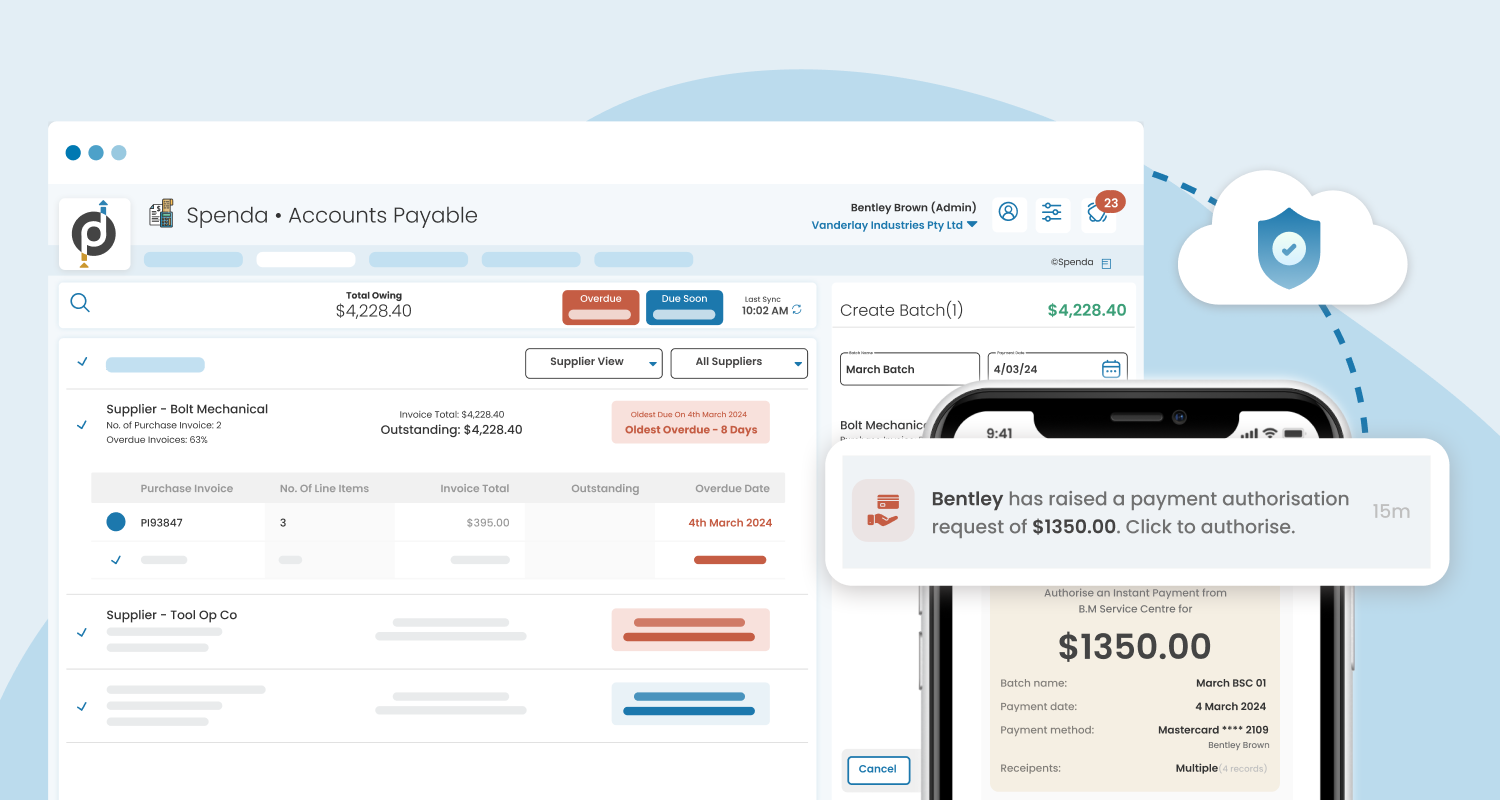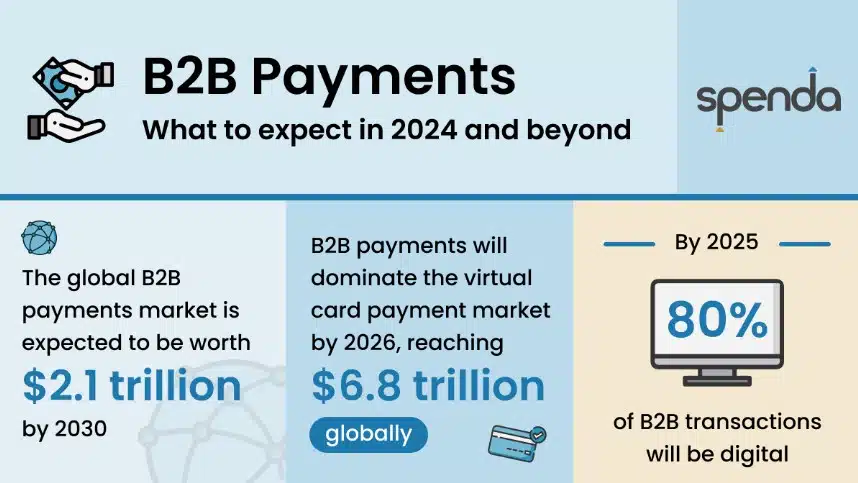Subscribe to our blog
Press

6 trends shaping business payments in 2025
The business payments landscape is changing fast and will continue to do so across 2025. As quicker and more efficient payment solutions become the norm, several key trends are transforming business-to-business (B2B) transactions.

Practical ways to strengthen small business cashflow
In this article, we discuss how businesses can use non-traditional unsecured business loans to improve their cashflow management, access funds quickly without collateral, and address various financial needs with greater flexibility. Keep reading to learn more.

Spenda, Limepay partner with Lessn to boost payment capabilities
Integrated business platform that allows companies across the supply chain to sell and get paid faster, Spenda, and its acquiree company, Limepay, have recently partnered with Lessn.

The ROI of speed: How integrated digital solutions can expedite the payment cycle
Bringing in new business, extending credit to new customers, and delivering exceptional products and services all contribute to driving revenue growth.

The digital CFO: How to lead your business to financial success
Effectively leading and expanding a business requires leaders to reflect on past performance to identify areas for improvement, while concurrently devising and executing strategies that drive sustained long-term growth.

Five Fintechs on Friday
Fintech Australia selected Spenda as one of five fintech companies you need to know

How to transform your accounts payable function into a strategic powerhouse
For many years, the primary role of accounts payable (AP) has been to make payments to suppliers, employees, contractors, and any other person or business who was owed money.

Spenda Accounts Payable x Spenda Wallet: The faster and more secure way to pay invoices
Spenda, a leading B2B software and payment solution provider, has announced a significant upgrade to its Accounts Payable (AP) solution.

Technology may be advancing and changing, but the value of strong cash flow isn’t
Digital transactions and evolving financial technologies have dominated digital transformation in recent years.

How the right payment solution can drive growth and transform your supply chain
Despite the disruptions of recent years and the move of many operations online, friction still exists in business-to-business (B2B) payments.

Spenda and eBev Partner on Integrated Payments Solutions for Marketplace
Spenda has partnered with eBev to provide integrated payments solutions across the eBev marketplace.

B2B payments: What businesses can expect in 2024 and beyond
As businesses look for more efficient ways to make and take payments and even fund their operations and growth initiatives, digital B2B payment technology is proving to be an effective solution.
